
"Life is too bitter. I really need this kind of funny drama to slow down. This is my favorite cooking drama recently." A Douban netizen commented on a costume love comedy "Qing Qing Daily" that was recently launched.
On November 16th, the peak content of "Qing Qing Daily" in the iQiyi station exceeded 10,000, making it the fourth series of iQiyi this year and the fastest series in the history of iQiyi. Since its launch, the drama has attracted more than 2,000 hot searches on social platforms, and it has caused heated discussions in Weibo, Tik Tok and other major social platforms. # Qingqing’s daily life seems to be a comprehensive collection of ancient costumes # # Qingqing’s daily electronic mustard tuber # # King Gigi plays a Neptune in Qingqing’s daily life # # Qingqing’s daily life is qingqing grasslands bar # and many other topics have been repeatedly searched, which has helped the drama break the circle successfully.
The "high opening and crazy walking" of "Qing Qing Daily" can not be separated from the "accurate" grasp of the taste of the mainstream audience, which gives a good emotional outlet to the audience surrounded by pressure and anxiety in real life with a relaxed and funny plot; At the same time, it also tells a story with modern social characteristics in the ancient background, and shows the true personality and emotional needs of contemporary women through the mouth of the women in the play, which has won many female audiences’ resonance.

Daily narration of anti-routine
Qing Qing Daily is adapted from the novel qing wear Daily by online writer Mu Muduo. The original work belongs to the representative work of "Farming Literature", which refers to a style of work in which stories mostly take place in underdeveloped periods and regions, focusing on describing trivial matters and psychological changes of small people in their lives.
In the process of adaptation, Qing Qing Daily abandons the Qing Dynasty background and crossing elements of the original novel, and retains the basic character setting and narrative style. For example, Li Wei, the heroine, is a poor girl with mediocre qualifications and no ambition. She only wants to eat, drink and live a good life every day. The emotional progress between her and Yin Zheng is not based on the two people experiencing "big winds and waves" together, but gradually warming up in three meals a day; In the play, the scene between Li Wei and his sisters-in-law is either cooking or eating. In addition, the drama also downplays the battle for power between Yin Zheng and the head of the office and the brothers, as well as the plot in the conflict between Xinchuan and other Sichuan provinces, which makes the drama more like intercepting a corner of life in the grand historical background. Such a plain, daily and light narrative method presents a slow life picture of "taking quiet in the middle of trouble" and gives the audience with fast-paced life a "decompression" experience.
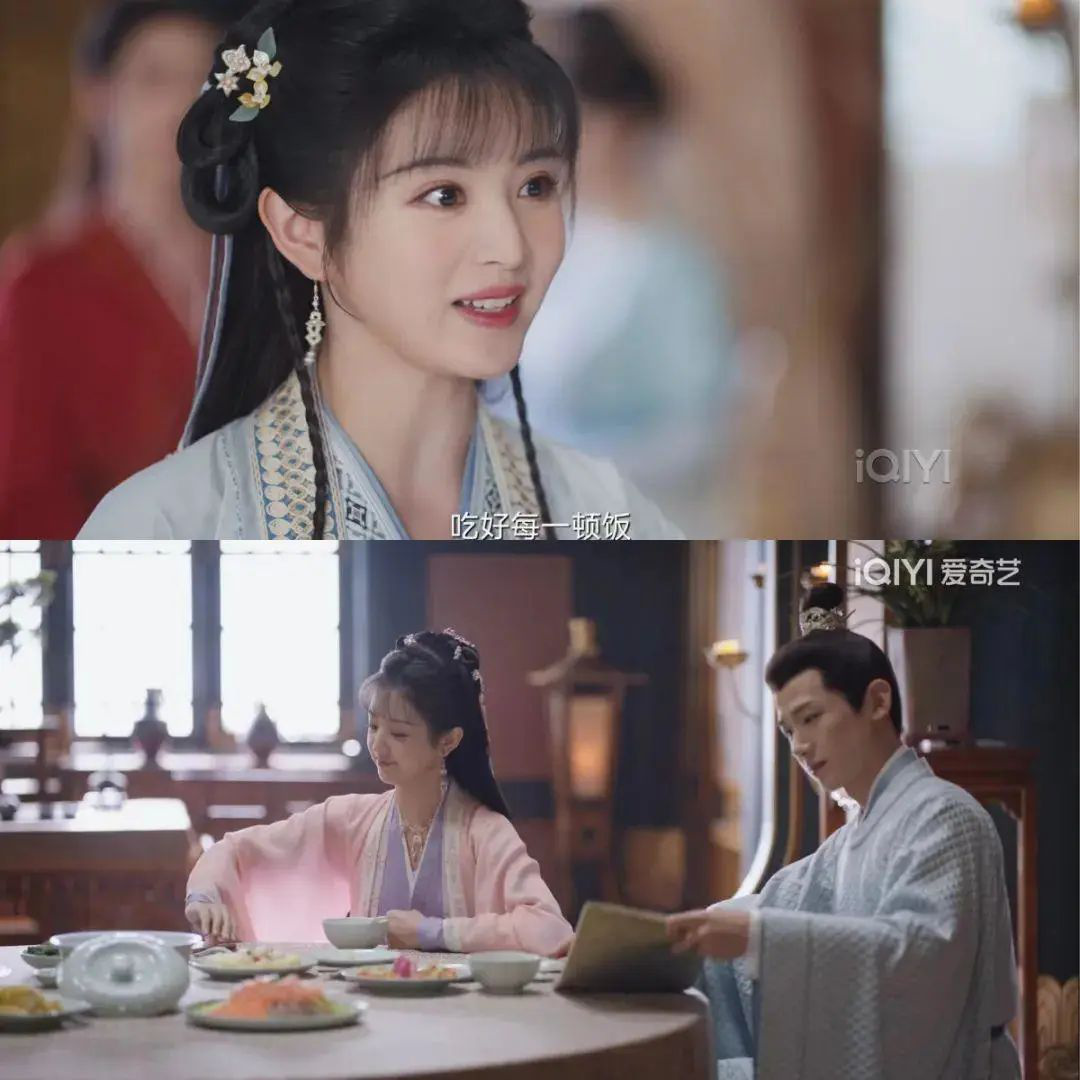
The play is also full of many unexpected and innovative "anti-routine" plots. For example, in the audience’s cognition, the show girls who participated in the draft are generally well-known families, but the show girls sent by Ji Chuan are Li Wei because of her poor family and inability to deal with the relationship; Everyone’s mouth is charming and looks less than Pan An’s three masters, but the real person is Liu Guanlin, who was nicknamed "King Gigi" by netizens in "The Widowed Husband"; In the play, Yin Zheng was given a wedding and came home without saying a word. When there was about to be a conflict with Li Wei, the old servant’s "long mouth" spoke, which also made the audience straightforward.
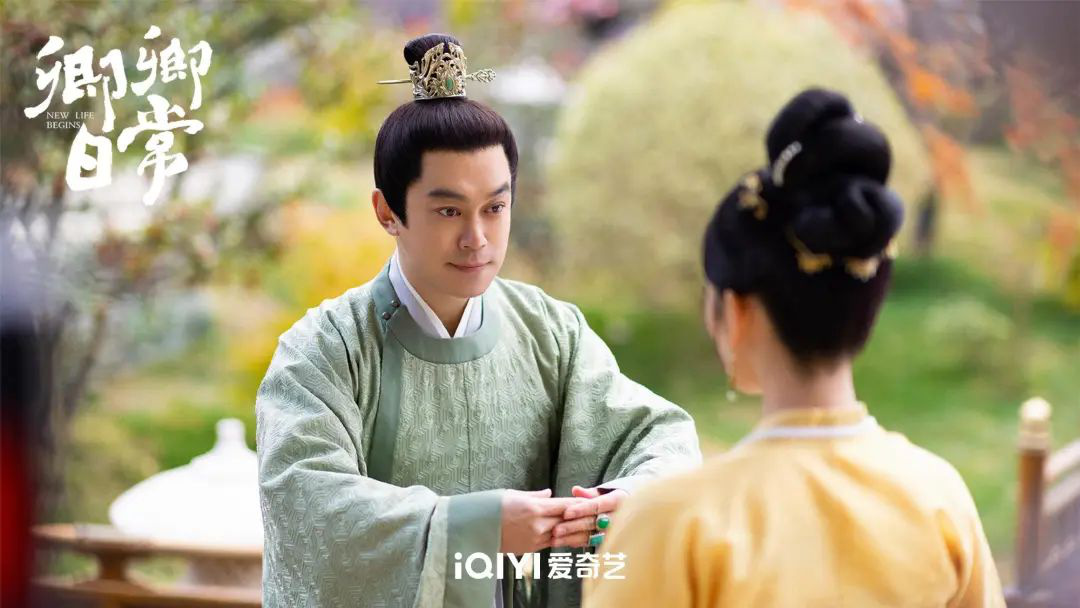
In addition, the comedy’s punchline design is also very dense, and by constantly throwing stalks, shaking burdens, and creating funny scenes, it continues to give the audience the motivation to pursue the drama. For example, Li Wei mistook Yin Zheng’s "Book Examination Day" as the day of his death, so she not only marked "Widowhood Day" on her calendar, but also mentioned many times in her family letters: "My husband is going to die, an all-consuming love, I can come home as soon as possible." Even on the day of Yin Zheng’s book test, he held an onion in his hand to tear, and put on hemp for him, Dai Xiao. The plot setting full of jokes attracted the audience to laugh constantly, so "Qing Qing Daily" was called "electronic mustard tuber" by many viewers.

Female group images of "anti-female competition"
"It’s good that all women don’t love their husbands. Haha." This comment by a Douban netizen has won more than 800 praises.
As a costume drama that focuses on love, Everyday for Qing Qing does not follow the path of "seeing for ten thousand years and being in love for three generations" in most fairy tale dramas. I didn’t take the script of "step by step, breaking my love" in the traditional palace drama; Nor is it like "men and women pull and throw industrial saccharin to the limit" in the general sweet pet drama; In a light, daily and joyful way, it tells the story of the secret affection between men and women due to long-term coexistence, satisfying the audience’s psychology of "watching others fall in love the sweetest".
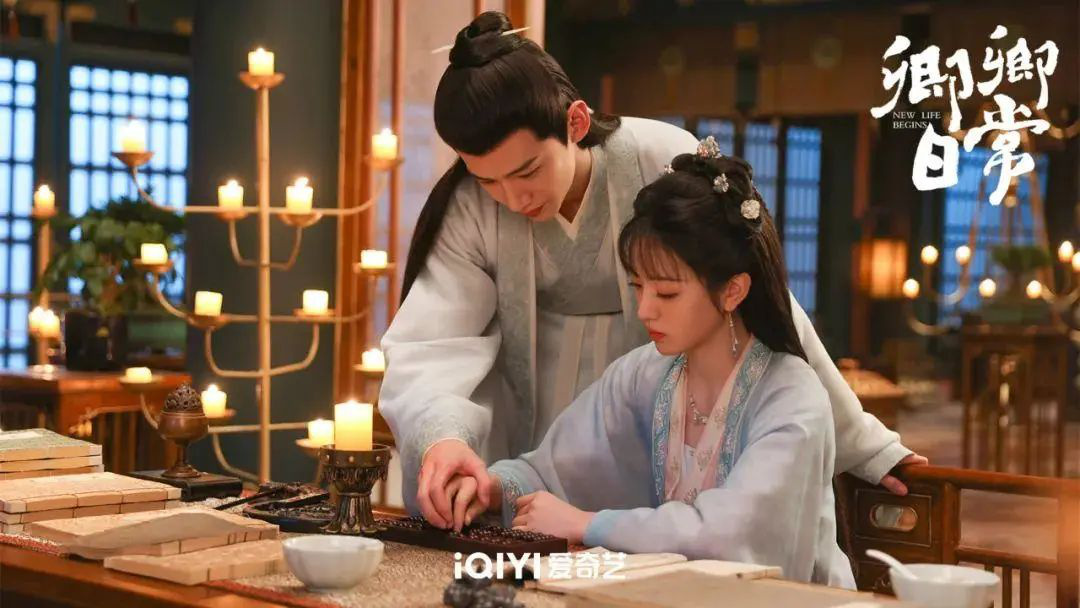
First of all, from the perspective of role setting, as a love drama in ancient costume, "Qing Qing Daily" takes the emotional progress of Ji Chuan’s poor scholar Li Wei and Xin Chuan’s six sons Yin Zheng as the main story, but it does not simplify the side story, but gives two young masters and their two wives, three young masters and their "twenty-five wives", five young masters and seven young masters a certain narrative space respectively. Therefore, " Such a role setting can, on the one hand, contrast and reflect the personality, characteristics and mode of getting along with each other from different angles; On the other hand, it also enriches the story and meets the audience’s demand for "one drama and more CP".
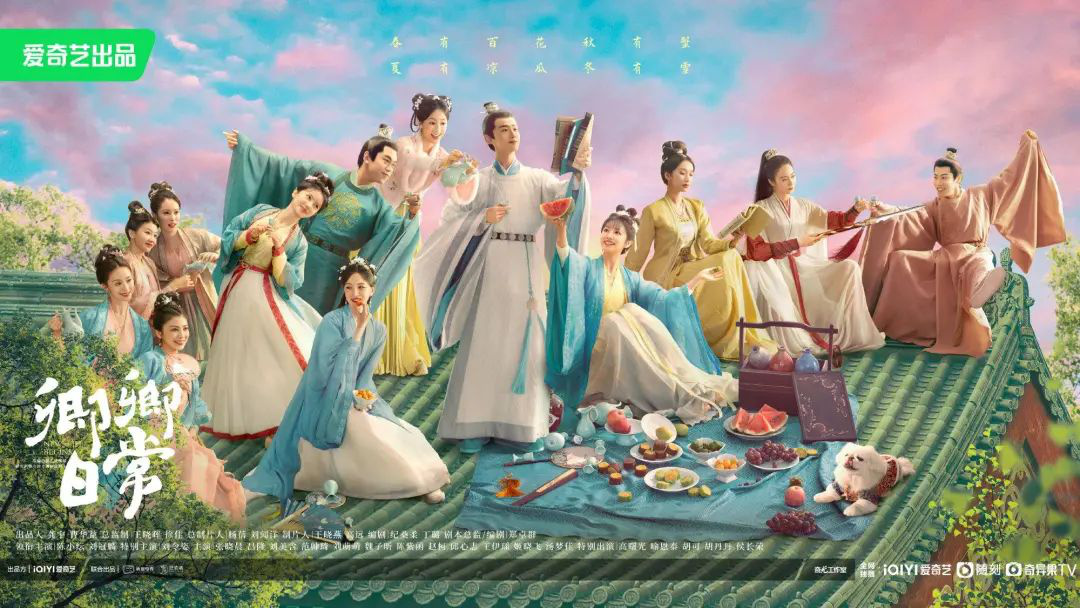
Everyday in Qing Qing also created a group of female characters with modern female consciousness. For example, Li Wei, the heroine, comes from Jichuan, which pursues equality between men and women and monogamy. Therefore, from the moment she stepped into Xinchuan, which pursues polygamy, she was waiting for her husband to return home, and she repeatedly threw out a modern view of equality between men and women in the play. However, Erhao, a woman who grew up in an environment where men are superior to women and was born in a common woman, chose to "abandon love" after witnessing the influence of marriage and childbirth on women’s status since childhood, and chose the most powerful husband as her owner, just to earn a good future; Shangguan Jing, the monarch of Danchuan County, who comes from a woman who is in charge of the family and recruits her husband’s wife, has a bold personality and a superb martial arts. She prefers to walk freely in the rivers and lakes than marriage. Before being "collected" by the three young masters, the girls in the twenty-four solar terms also worked hard for their livelihood. Such a female role with different personalities, sober human life and certain personality independence has won many female audiences’ welcome.
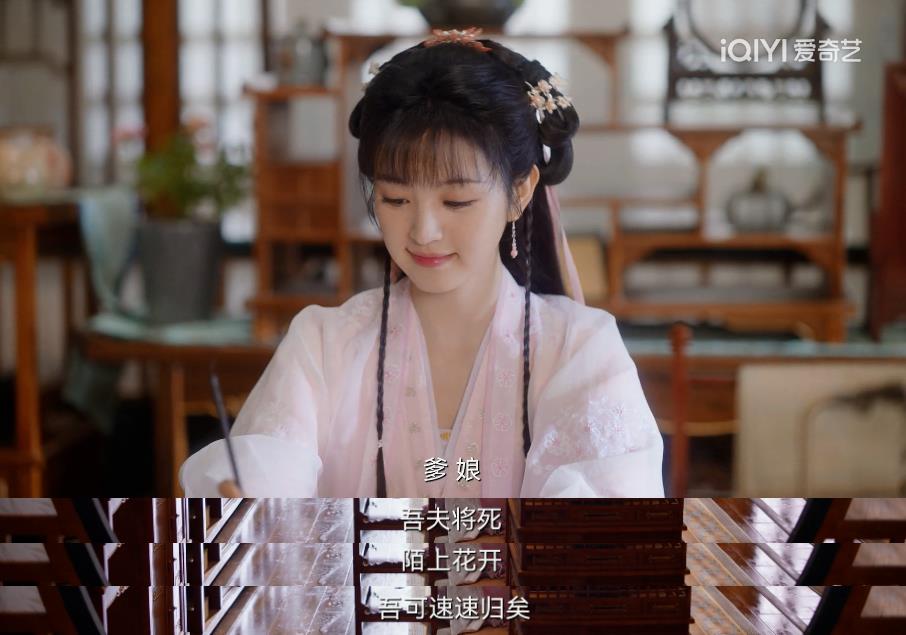
In addition, although the story in "Qing Qing Daily" mainly takes place in Xinchuan, where men are in power, there is almost no "female competition" bridge where women are fighting for favor and jealousy. On the contrary, the friendship of mutual help and mutual understanding among women is reflected everywhere. For example, Song Dance, who was secretly in love with Yin Zheng and opposed to Li Wei everywhere, was unfortunately chosen to marry and kiss, and Li Wei actively advised her to avoid kissing; When the girl in the twenty-four solar terms was punished by the three young masters, Li Wei and Yuan Ying went to the door directly to rescue her. This plot of mutual help between women can be seen everywhere in the play, which reflects the pursuit of independence, freedom and self-improvement by contemporary female audiences.

"Modern" Narration by Metaphoring the Ancient to the Present
Another reason for the popularity of "Qing Qing Daily" is that it tells a story with modern social characteristics in the ancient background. This expression of borrowing ancient times to describe the present is closer to the living conditions of contemporary young people, which is more likely to resonate with the audience.
First of all, the characters’ personalities, ways of thinking and logic in Everyday for Qing Qing are all "modern people". For example, the seven young couples in the play are a couple who are "numb-headed" at the thought of communicating with others in social occasions. In the play, the two are in great pain because they need to prepare for the opening banquet, which shows the daily life of social fear to the fullest.
Secondly, the play also sets many topics that are also concerned by women in today’s society. For example, in order to avoid the situation of "being kissed" in Song dance again, Li Wei proposed to look at each other-a blind date in modern society-to find a husband for them, and in the process, he restored several common men in modern women’s blind date bureaus, such as Ma Baonan, a boastful "trustworthy man" and a greasy man with malicious intentions, which caused female audiences to smile.
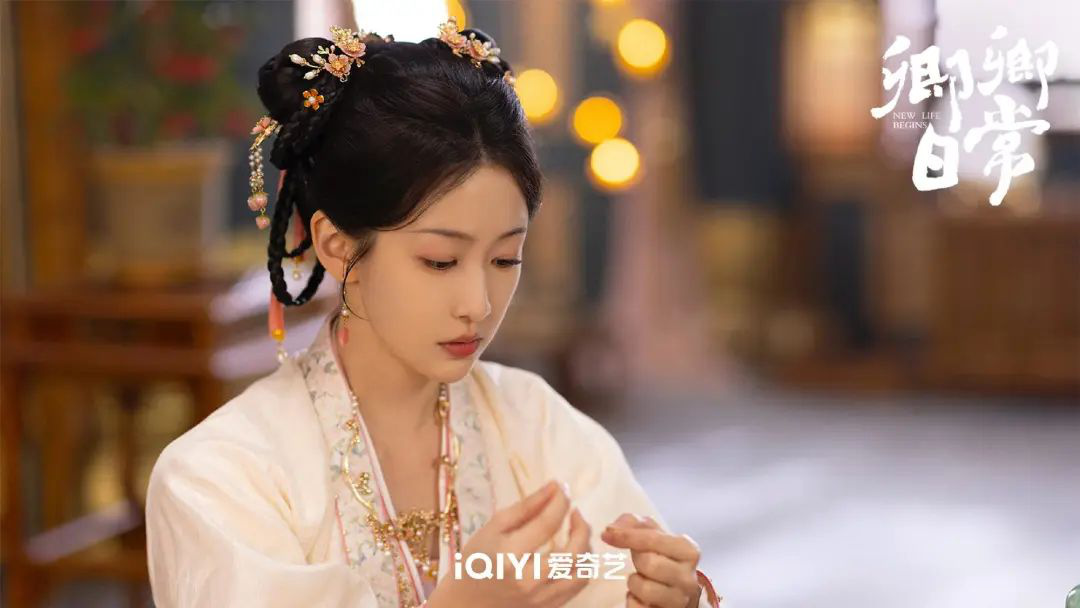
Thirdly, under the historical background of overhead, the respective regions and cultures of "Jiuchuan" can easily remind the audience of the unique local customs of various regions in China, such as Danchuan, which likes to eat spicy food and is dominated by women, and most men are "raking their ears", which can easily remind people of Sichuan and Chongqing; Mo Chuan, which lives in the north, has strong troops and tough folk customs as a military fortress, can correspond to the three northeastern provinces and Inner Mongolia; Cangchuan, located in the northwest, full of deserts and rough folk customs, is more reminiscent of southern Xinjiang.
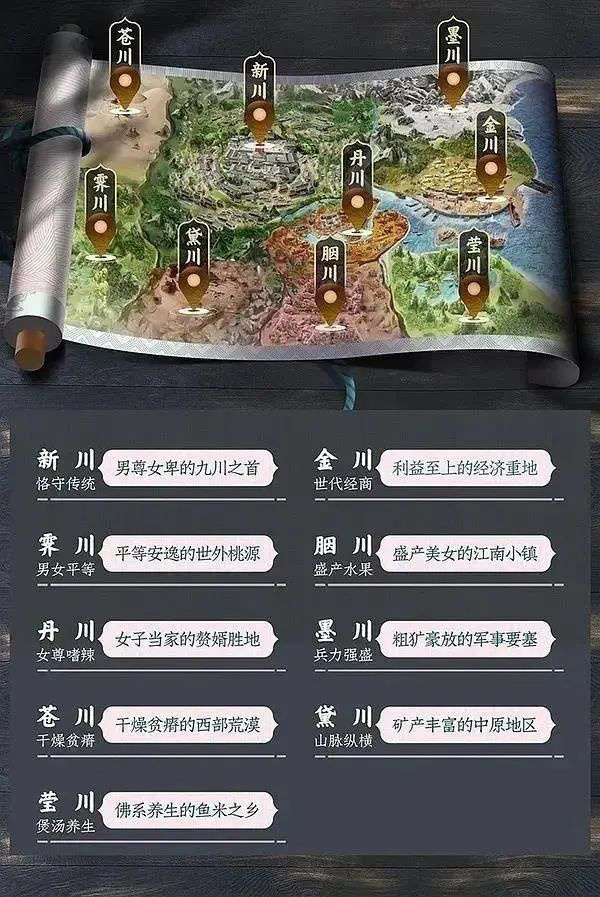
All these settings make Qing Qing Daily more like a modern drama in a costume. From the explosion of Qing Qing Daily, it can be seen that young audiences have new requirements for novelty, interest and richness of roles in costume love dramas. Qing Qing Daily has also made some innovations in the content category of costume love dramas: it can make people move, not only the wind and waves, but also the love of the two.
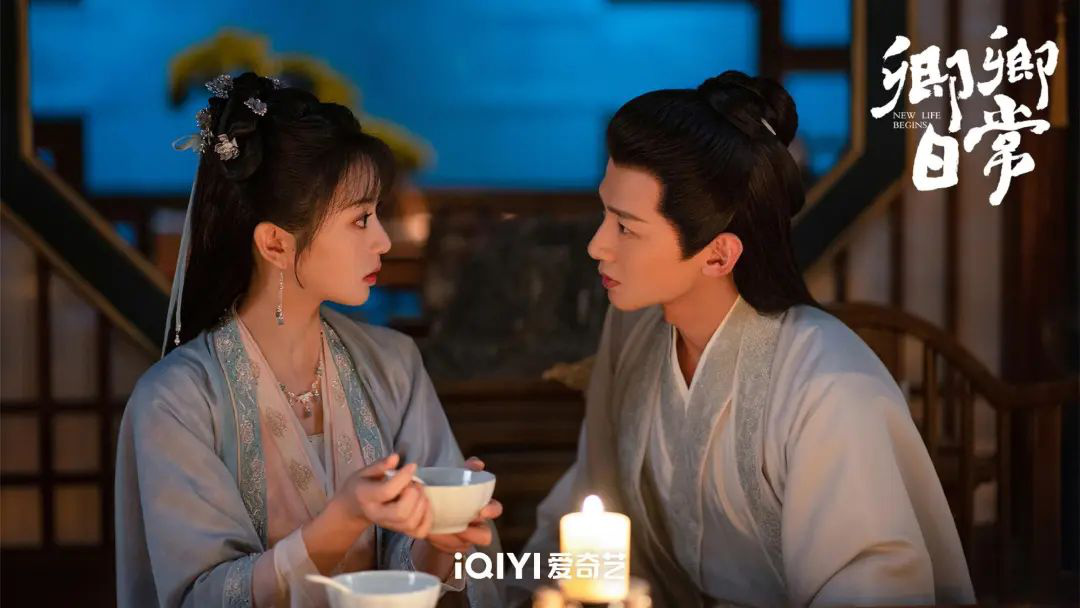
However, at the same time, Everyday for Qing Qing also has some relative regrets. For example, at present, although there are many female roles and different personalities in the play, all their efforts to change their own destiny are ultimately invincible to the "husbands and godsons" under the oppression of imperial power and patriarchy. For example, the channels and directions for Li Wei and Yuan Ying to gain freedom in the play are based on the "good future" of six young masters. From this point of view, if it is not enough as a rebellious female group drama "Qing Qing Daily", but as a light and daily sweet drama, "Qing Qing Daily" is undoubtedly an excellent student.
关于作者